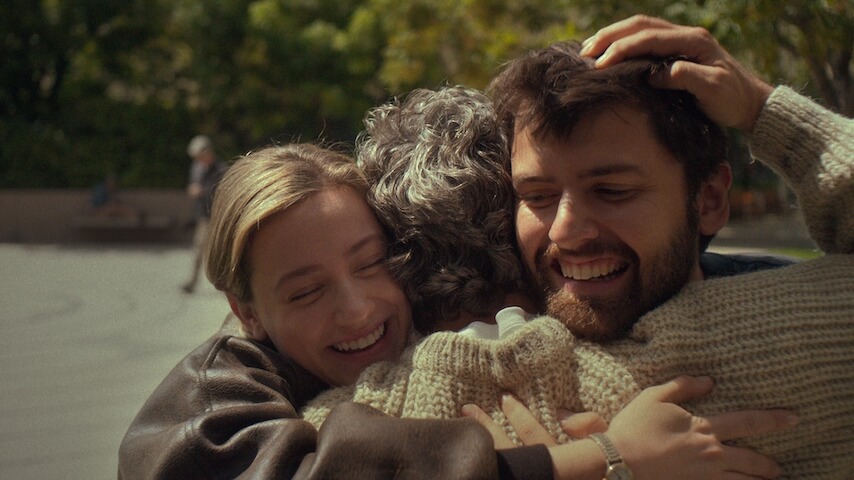Cooper Raiff's Hal & Harper is a bittersweet love letter to messy families
The filmmaker moves to TV (and another genre) with a MUBI series that co-stars Mark Ruffalo and Lili Reinhart.
Photo: MUBI
For a minute there, Cooper Raiff seemed poised to become the king of indie rom-coms. The writer-director-actor burst onto the scene with Shithouse, a charming walk-and-talk college romance that brought some intimate humanity back to the genre. And he followed that up with Cha Cha Real Smooth, a riff on The Graduate in which he played a bar-mitzvah party starter opposite Dakota Johnson’s beguiling single mom. Between his sheepishly charismatic onscreen persona and his knack for writing humanistic dialogue, Raiff easily could’ve become a sort of Richard Linklater/Hugh Grant hybrid. But his next project is a leap in a whole new direction. Not only has he traded in indie movies for indie TV, he’s traded in stories about romantic love for an arguably even more complex topic. Raiff’s new eight-episode Mubi series Hal & Harper is all about family.
Of course, given that it’s a family where 24-year-old Harper Williams (Lili Reinhart) admits that she sometimes feels like the wife of her college-aged brother Hal (Raiff), perhaps the division isn’t so simple. Hal & Harper is specifically about sibling codependence—the way the people we grew up with can become the ones we cling to rather than evolve with. Also featuring Mark Ruffalo as Hal and Harper’s regretful father, the series is a funny, bittersweet, beautifully performed, sometimes meandering, but ultimately deeply moving ode to that old Leo Tolstoy observation that “All happy families are alike; each unhappy family is unhappy in its own way.”
In this case, the Williams are both unhappy and happy at the same time. They’re closer than a lot of families—offering waves of emotional support in between the hilarious back-and-forth banter that soundscapes their never-ending hangouts. (Hal spends more time at Harper’s place than his own college apartment.) Yet there’s so much that goes unsaid between them too. They barely ever talk about the tragedy that reshaped their family dynamic back in 2004. Privately, however, it’s all they ever seem to think about, especially when “Dad” announces that his girlfriend Kate (Betty Gilpin) is pregnant and he’s selling Hal and Harper’s childhood home to move in with her.
While Hal & Harper is filled with the humor, heart, and breezy banter of Raiff’s first two films, it’s also a more challenging, formally inventive project. Raiff may be back to playing a college student, but his filmmaking style has matured. (He wrote and directed all eight episodes, which premiered at Sundance earlier this year.) An off-kilter, staccato editing style creates a tapestry of repressed memories, wandering minds, and juxtaposed lives. And Raiff makes one particularly big swing at the center of the series. He and Reinhart don’t just play their characters as adults, they play them as elementary schoolers too—dressed up in striped shirts and overalls but surrounded by actual kids, like a more dramatic take on Pen15.
 Keep scrolling for more great stories.
Keep scrolling for more great stories.
